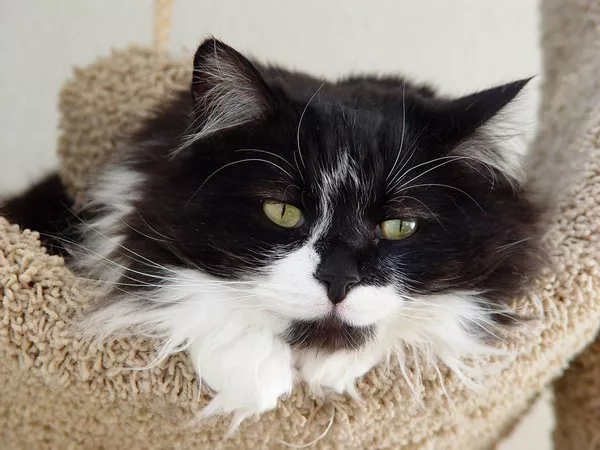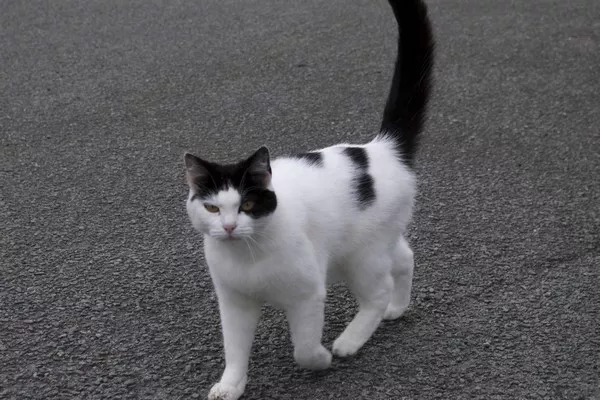Cats are often seen as enigmatic creatures, exhibiting behaviors that can perplex even the most seasoned cat owners. One of the most intriguing questions surrounding feline behavior is whether cats can perceive the passage of time and, if so, how this affects their reactions when their owners leave for extended periods. This essay explores the concept of time perception in cats, examining their cognitive abilities, attachment styles, and the impact of separation on their behavior. By understanding how cats perceive time, we can gain insights into their emotional responses to our absences and learn how to better support their well-being during these times.
Understanding Feline Cognition
The Cognitive Abilities of Cats
Cats possess a unique set of cognitive abilities that allow them to interact with their environment and understand their relationships with humans and other animals. While they may not have the same level of cognitive complexity as dogs, research indicates that cats are intelligent creatures capable of learning, problem-solving, and even understanding some aspects of human behavior.
Memory: Cats have excellent long-term memory, which enables them to remember people, places, and experiences. This memory plays a crucial role in how they perceive their environment and their interactions with their owners.
Learning Through Experience: Cats learn from their experiences and can adapt their behavior based on past events. For example, if a cat associates a specific sound (like a car door closing) with its owner’s return, it may react differently when it hears that sound in the future.
Sensory Perception: Cats rely heavily on their senses—particularly smell and hearing—to navigate their world. Their acute senses allow them to pick up on subtle changes in their environment, which can influence their perception of time and absence.
The Concept of Time Perception
Time perception, or the ability to perceive and understand the passage of time, is a complex cognitive function. While humans have a structured understanding of time—often measured in hours, days, and weeks—animals, including cats, may perceive time differently. Research suggests that animals have an innate sense of time based on biological rhythms and environmental cues.
Circadian Rhythms: Cats have circadian rhythms that regulate their sleep-wake cycles, feeding behaviors, and activity levels. These biological clocks can influence how they perceive the passage of time throughout the day.
Interval Timing: Some studies suggest that animals can perceive time intervals, allowing them to recognize the difference between short and long durations. This ability may help cats anticipate events, such as meal times or their owner’s return.
Temporal Context: Cats may use contextual cues to gauge time. For example, they might associate certain activities (like playtime or feeding) with specific times of day, helping them form a rough understanding of when these events occur.
How Cats React to Their Owners’ Absence
Initial Reactions to Departure
When a cat’s owner leaves, the initial reaction can vary widely based on the cat’s personality, attachment style, and past experiences. Some common behaviors observed when a cat’s owner departs include:
Vocalization: Many cats will vocalize when they notice their owners leaving. This can include meowing, crying, or even howling, signaling their distress or desire for attention.
Exploration: Cats are naturally curious, and when left alone, they may explore their environment more thoroughly. They might investigate areas they typically don’t visit or check for their owner’s belongings.
Seeking Comfort: Cats may seek out familiar items, such as toys or blankets that smell like their owner, to find comfort in their absence.
Signs of Distress During Absence
As time passes, some cats may show signs of distress due to their owner’s absence. The severity of these reactions can depend on the length of time the owner is gone and the cat’s individual temperament.
Changes in Appetite: Stress can lead to changes in eating behavior. Some cats may eat less or refuse food entirely, while others may overeat as a coping mechanism.
Litter Box Issues: Anxiety can manifest in litter box problems, such as urinating or defecating outside the box. This behavior can indicate stress or discomfort.
Increased Grooming: Some cats may groom themselves excessively when anxious, leading to bald patches or skin irritations.
Destructive Behavior: Boredom or anxiety can lead to destructive behaviors, such as scratching furniture or knocking over objects.
Hiding: Stressed cats may retreat to hiding spots, avoiding interaction and becoming less active. This behavior can be a sign of fear or anxiety.
The Impact of Duration on Behavior
Research indicates that the duration of an owner’s absence can significantly impact a cat’s behavior and emotional state.
Short Absences: For brief separations, such as a few hours, many cats adjust relatively well. They may engage in their usual activities, such as sleeping or playing, and may not exhibit significant signs of distress.
Extended Absences: When owners leave for longer periods, such as days or weeks, the effects on a cat’s emotional state can be more pronounced. Signs of separation anxiety may become evident, including changes in behavior, vocalization, and increased clinginess upon the owner’s return.
Strategies to Minimize Anxiety During Absences
Preparing Your Cat for Your Absence
To help minimize anxiety and ensure your cat feels secure while you are away, consider the following strategies:
Create a Safe Environment: Ensure your home is a safe and secure space for your cat. Remove any hazards and provide hiding spots where they can retreat if they feel stressed.
Familiar Items: Leave behind familiar items, such as your clothing or blankets, to provide comfort during your absence. The scent of their owner can have a calming effect on cats.
Consistent Routine: Maintain a consistent routine for feeding, playtime, and other daily activities. This predictability can help reduce anxiety and provide a sense of stability.
Choosing the Right Care Option
Selecting the right care option while you are away is crucial for your cat’s well-being. Consider the following options:
Pet Sitters: Hiring a professional pet sitter can provide companionship and care in your absence. A sitter can maintain your cat’s routine, offer playtime, and provide comfort.
Boarding Facilities: If you choose to board your cat, select a reputable facility that prioritizes feline care. Visit the facility beforehand to assess the environment and meet the staff.
Friends or Family: If possible, ask a trusted friend or family member to care for your cat. Familiar faces can provide comfort and reduce anxiety.
In-Home Care: Some services offer in-home boarding, where a caregiver stays in your home with your cat. This option can provide a sense of security and familiarity.
Gradual Departures
To help your cat acclimate to your absence, practice gradual departures leading up to your vacation. Start with short separations and gradually increase the duration. This approach can help your cat adjust to your absence and reduce anxiety.
What to Expect Upon Your Return
Reuniting with Your Cat
The reunion between you and your cat after a vacation can be a heartwarming experience. However, the way your cat reacts can vary based on their personality and attachment style:
Excitement: Some cats may greet their owners with enthusiasm, purring, and rubbing against their legs. This behavior indicates a secure attachment and a strong bond.
Indifference: Other cats may seem indifferent or aloof upon your return. While this behavior can be disheartening, it may simply reflect their independent nature or a coping mechanism for your absence.
Stress Responses: In some cases, cats may display signs of stress upon your return, such as hiding or excessive grooming. This behavior can indicate lingering anxiety from your absence.
Rebuilding Trust and Connection
After returning from vacation, it is essential to rebuild trust and connection with your cat:
Quality Time: Spend quality time with your cat, engaging in play and offering affection. This can help reassure them and strengthen your bond.
Patience: Be patient with your cat as they readjust to your presence. Some cats may take longer to feel comfortable again, especially if they experienced anxiety during your absence.
Routine Reestablishment: Reinstate your cat’s daily routine as quickly as possible. Consistency can help them feel secure and reduce any lingering anxiety.
Conclusion
In conclusion, the question of whether cats can tell how long you are gone is complex and multifaceted. While cats may not perceive time in the same structured way that humans do, they possess cognitive abilities that allow them to recognize the passage of time and respond to their owners’ absences. Factors such as memory, learning through experience, and biological rhythms all contribute to how cats experience time.
Understanding how cats perceive time can help owners better support their pets during periods of separation. By creating a safe environment, maintaining routines, and choosing appropriate care options, owners can minimize anxiety and ensure their feline companions feel secure in their absence. Ultimately, recognizing and addressing the emotional needs of cats during separations can strengthen the bond between cats and their owners, leading to a happier and healthier relationship.



























